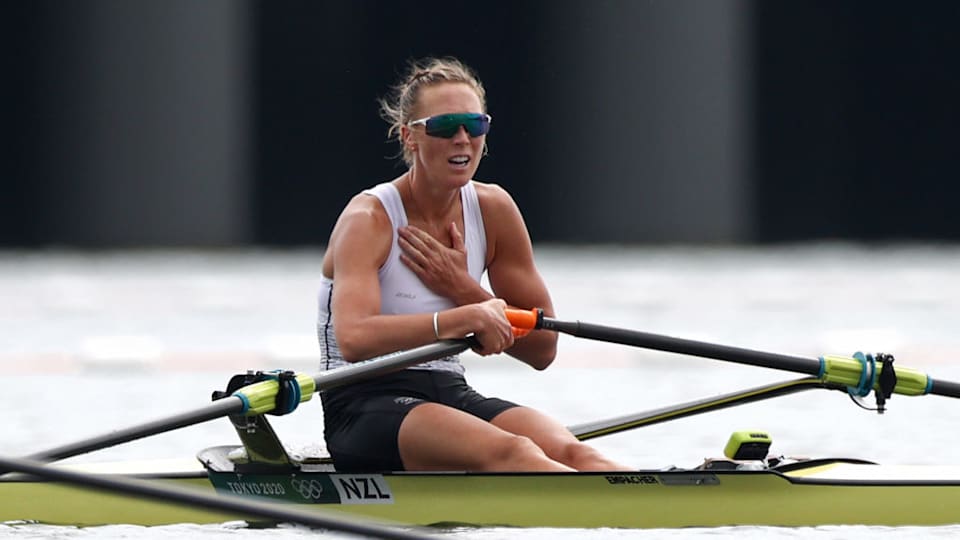
Emma Twigg has won a second rowing gold medal for New Zealand at the Tokyo Olympics, taking the title in the women's single sculls rowing.
The New Zealander, who is a former world champion, produced a convincing victory in a time of 7:13.97 - a new Olympic best time.
This gold is Twigg's first Olympic medal in her fourth Olympic Games and it is the first time New Zealand has won gold in the women's single sculls.
“It hasn’t quite sunk in yet," said Twigg on winning the gold, "but it feels pretty amazing.”
Reflecting on her career, the 34-year-old rower added that the medal has been "part of the journey in the sport".
"The message to those who don’t have the results is that if you believe in yourself and keep going and dreaming, this can be the result.”
Hanna Prakatsen, who is representing ROC, finished second behind Twigg in 7:17.39 and Austria’s Magdalena Lobnig took the bronze medal.
Lobnig hit the front early in the first leg, closely followed by People’s Republic of China’s JIANG Yan and Jeannine Gmelin of Switzerland, but by the time they reached the 500m mark, Twigg had established a narrow lead.
The New Zealand rower, 34, increased the lead over Lobnig to 2.18 seconds at the halfway mark, with Jiang now in third place.
As Twigg continued to pull away from the field, the battle for second place intensified.
European champion Prakatsen, who was in fourth place after 1,000 metres, found another gear and came back at Lobnig and Jiang. The ROC rower was 1.23 seconds ahead of the Austrian’s boat at the 1,500m mark.
Twigg held her form to cross the line 3.42 seconds ahead of the field to take the title.
The ROC rower, who had made another push in an attempt to catch Twigg, crossed the line in second place, with Lobnig a further 2.33 seconds behind.
"I just focused on myself," explained Lobnig. "I didn't want to look around, just wanted to make the perfect start from the beginning and to sit in front of Great Britain (Victoria Thornley).
I thought OK, Great Britain is my marker for the race. If I'm in front of her, the medal chance is quite high.
"I heard Kurt (Traer, Austria's coach) screaming. [In] the last 500 (metres) he just said 'aaaarrgh' and I knew that's the sign. He knew, I think, I looked still OK and for the last 500 I could sprint.
"It was the most important thing to have something left in the last quarter of the race, and I did it."
